What Truly Matters — Insights from Launching Alice on Product Hunt
Three weeks ago we’ve launched Alice on Product Hunt and onboarded first 100 clients. Here's exactly what we did and a bunch of stats. Plus my personal take on why launching products is so exciting!
I have a feeling that we don't celebrate small victories often enough. Typically, if something bad happens to us, we can think about it for hours, but if we manage to achieve something - we quickly move on to chase other goals. At least that's how it is for me and it's quite difficult for me to break out of this pattern.
Sometimes, however, it's worth taking a moment to simply appreciate what we have and what we've managed to do. Such reflection hit me while checking the premiere statistics of Alice - the AI assistant we've been developing with Adam Gospodarczyk for over a year. It dawned on me that people from 131 countries around the world visited Alice's website 🤯
We often overlook the magnitude of our accomplishments. Indeed, we're among the first generations for whom such feats are even possible, let alone being just a pair of tech enthusiasts dedicating our spare time to creation, hoping that other can benefit from it.
Take a moment, unwind, and envision how curious minds from all corners of the globe are embracing your concept, reading your narrative, engaging with your creation. This is a truly gratifying experience.
The true value of Alice
We created Alice for ourselves and we use her dozens or even hundreds of times a day. Our colleagues also use her, creating their own assistants, performing actions, serving customers. Handing Alice over to others was exciting, but because we made her for ourselves, it completely eliminated the pressure usually associated with a premiere. You could say that Alice paid off for us long before her premiere, so launching the public version was an opportunity for us to celebrate and satisfy our curiosity about whether others would also like Alice.
Creating products for yourself, that is, solving your own problem, in order to later launch it for others - removes the pressure of the premiere and allows you to enjoy the fact that you are doing something good for others.
This is one of the launch screens. However, the early version of Alice wasn't very polished. After all, we were creating it for our needs and didn't want to waste time on unnecessary embellishments of the app. However, deciding to release it to the world, we had to change our thinking. Few people would understand the laconic labels or shortcuts that were only in our heads. Therefore, we had to completely rethink Alice and prepare a beautiful and intuitive interface for her, which others would use. In practice, it was a lot of work, but over time we realized that it simply made our application much better.
Shifting the focus of your project to the user, UI, and UX, helps to better understand the nature of what we're creating. As a result, it continually improves, also enhanced by user feedback. I am grateful that the launch helped us to simply create something much better, providing more value.
Launching Alice on Product Hunt
The statistics of the premiere day itself look like this (and here’s the launch page). It wasn't without problems, because for the first 2 hours, our subpage was not visible on Product Hunt for unknown reasons. Its discovery coincided with my intervention via chat, although I don't know if that helped. Then, throughout the day, we managed to be on the main page, first oscillating around the #6 position, then moving up to #2, and finally ending just off the podium, at #4. We got almost 500 upvotes on a busy day. Competitive days are generally weekdays till Thursday. If you feel brave, it’s better to launch during this days — in general it gives you more exposure, although, if you’re more interested in reaching the podium, weekends are easier, and Monday is when no big company launches so it’s also a bit safer.
In essence, the position doesn't matter. The mere fact that you're doing a premiere means you've already won.
In the context of Product Hunt itself, there are several things worth noting:
You get a dofollow link from a valuable domain - you've already won!
If you finish in the Top 5, you have a chance to be promoted in the Newsletter
If you finish high for the whole week, you have a chance for exposure in SoMe
You get a ton of feedback in the comments (interact with them through the day!)
As a result, higher positions (not necessarily podium) result in you receiving upvotes, comments, and reviews for a longer period.
This is a list of all the products that I have launched on Product Hunt so far. Some have won #1 spots, many have been on the podium, and practically all have ended up on the main page as featured. Please, take a look that even for products I launched years ago, last activity can be very recent!
The Product Hunt launch is a symbolic event and in itself does not have that much value. However, for me, this moment always means more, because then I can tell myself that I've seen something through to the end. Such an event allows me to focus on refining all the details - the app itself, the website, onboarding, and all the things around it, making our work, if only for a moment, complete. For a moment, because as we know, projects of this type are never finished and we always plan their development.
The premiere itself helps to focus on what's most important. Its value lies precisely in the fact that we have to finish all the details, the website, eliminate the most important errors in time for it - this helps in achieving the goal.
Launch Stats and Revenue
During the premiere, the Alice page was viewed by over 2000 unique users. As you can see, this gives a clear spike compared to the following days, but importantly, the traffic does not die after that time. The worst thing is to see a lot of traffic at the beginning, and then zero users on the site. That's why the activities related to the premiere are spread over a longer period, not just the launch day itself. For this reason, over 2 weeks later, we were able to generate 5 times as much traffic which is really important.
You don’t want your traffic to plummet the day after launch, it’s depressing. This is why you need the strategy for the following days to keep the momentum going.
Sales are a crucial aspect of the launch. Typically, we see a slight increase in sales for such high placements. However, this time, I didn't have high expectations, due to a few reasons - it's a fresh product in the highly saturated AI market. It's yet another AI assistant app, which I sense people have begun to resent as they've failed to live up to expectations. And, importantly, we don't offer a free trial. This is primarily because we provide free credits, and this could potentially be costly. Also, I don't believe that every product should have a free version. Free trials often require a lot of support, and as a team of just two founders, we prefer to concentrate on the product itself. And there's one more thing:
I like to leave some extra value that I can add to private launches, for example within communities. This way I can offer them free trial as a closed bonus for members, and not a discount.
We launched checkouts in 3 currencies: USD, PLN and EUR. Here are the stats for USD so far, with the launch day earning over $5000. It’s a sweet result! 🍭
In practice, we probably would have made at least 2-3 times as many sales by adding our reach to it. However, in this case, we did it a bit differently. Once a year, we run a program where we teach automation. The last programs were attended by 300 and 400 people, respectively. These people received Alice from us for free, along with a year of free updates. In practice, this was a very large purchasing potential that we lost during the premiere, but it's worth noting that these people paid for participation in the program itself, and besides, they are simply "our people" whom we always want to give a little more. The same goes for the newsletter you are reading - its paid subscribers also got access to Alice for a longer period. Thanks to this, we had a community that we could engage in the premiere. Firstly, to celebrate together what we managed to do, and secondly, these people helped us a lot by adding comments and reviews on Product Hunt.
In reality, such a premiere, contrary to what many people say, should take place when you already have a significant user base and community, not when you are just starting work on a project! This is the last thing to do, not the first.
Preparing for the Launch
Now that we have all important stats, let’s explore what did exactly do to prepare for the launch, during the launch, and in the following days. Of course, apart from building a product itself, the things I focused on before the launch were:
Building an audience — newsletter & our education programmes (3000+)
Building interest around Alice with a waitlist (3000+ partly overlapping)
Tweeting about Alice and posting teasers on LinkedIn
Building a sleek website
Creating a list of people and influencers to reach out / co-promote
Creating a list of directories and newsletters to reach out / sponsor
Recording extensive video tutorial library
Preparing launch materials (video, visuals, descriptions)
My primary emphasis is on the educational aspect that accompanies the products I launch. I firmly believe that well-constructed examples, documentation, explanatory videos, etc., especially for a product with a learning curve, can add immense value. I strive for these to be of the highest quality - this aids in setting the right expectations, justifying the pricing, reducing the burden on our support channels, and much more. Here's the explainer video we created for the launch:
Other examples are:
There’s one more advantage to education-first approach in the products. Our brand new YouTube channel started to get some initial traction!
Everything ultimately hinges on the weakest asset you possess. You can't have an excellent product that isn't backed by high-quality videos, a polished website, and appropriate pricing. Launch helps you make this all happen.
The Launch Day 🚀
The launch day is always very busy and if it’s not, you’re probably doing something wrong. I always regret not preparing all the materials and outreach beforehand, because doing it on the launch day always is stressful and generates delays. But some things just don’t change I guess so I accept myself being to lazy to leave it for the launch day. On the other hand it gives me some edge — depending on how the day goes I can push a bit more or back off a little bit. After all we don’t want to be bragging about anything. In general, the communication theme during the launch should be:
Mutual celebration that we invite people to
Great atmosphere, gratitude and asking for feedback (not upvotes)
Explaining how we got there, showcasing the effort
Modest, down to earth, honest and not marketing
Because the voting period spans 24 hours, starting at midnight in California, this gives us in Europe a slight advantage. It's 8 or 9 AM European time, so people are awake. It's beneficial to segment your lists geographically and send communication to Europe first, then follow the time zones. I try not to send more than 300-500 emails at once, even though the lists are larger. This helps to spread out upvotes and comments throughout the day, yielding the best results.
Just after posting on Product Hunt, I create a launch Tweet, and although I don’t have a big audience, those tweets usually do exceptionally well:
After publishing the tweet, I request my friends to retweet it. This time, we also engaged a few influencers whom we paid $20-30 for a retweet. A few days post-launch, I also ran a promotion for this tweet, investing another $50 or so.
The main CTA through all the launch day is linking to Product Hunt. I don’t link my website at all. This helps focus all the traffic on one place that I care this day.
I also publish a launch post on LinkedIn, and usually on Facebook, but this time I forgot. If time allows, throughout the day, I reach out to some people I had on my list previously.
Cold outreach isn't as frowned upon on launch day as it is on other days. Likely, fellow entrepreneurs will understand, so if you have a list - launch day is a good time for cold emails and direct messages.
Tech Stack for Marketing
I usually use the same toolstack for each new product. There’s a specific framework I follow that makes it really easy to quickly iterate and deploy essential elements. Here’s the tech stack around the marketing, if you’re curious:
Webflow — website
Airtable — CMS
Make — Automations, notifications
Easytools — Payments, billing (based on Stripe)
Google Analytics
YouTube, X, LinkedIn — Main social media channels
Alice — Helping with copy, repurposing descriptions and 100s more tasks
Loops — Onboarding and e-mails
Notion — Keeps everything organised
Breakcold — CRM and outreach
Dub — link tracking
Thanks to Easytools I set up payments, checkout, billing, detailed analytics, transactional e-mails, mailing list automation, taxes and reporting in 15 minutes… at 3 a.m. before the launch 😅
What I truly appreciate about Easytools is its simplicity in configuring analytics events. All I had to do was input my analytics ID into the tool. This provided me with superior reporting right off the bat, including attribution paths and more insightful data in the free version of Google Analytics:
Needless to say, Easycart comes with built-in referral tracking. This means all the traffic directed to my website via referrals can be easily attributed to its revenue. Pure gold!
With each launch, I aim to experiment a little, and this time I wanted to see how investing in promotion through micro-influencers and niche newsletters would fare. These activities were planned post-launch to sustain the momentum and further build trust. The outcome of this experiment is still uncertain, as despite a substantial number of clicks, we haven't seen a significant increase in sales. However, the positive impact is evident in the increased traffic to the website and my X profile, and overall, I've noticed heightened interest. Naturally, such initiatives require time as people need to build trust, and seeing Alice here and there certainly helps overall, even though it can't directly be attributed to sales at this point.
I tracked each link with Dub, and a special label so that it’s easier to compare the results:
The Hangover
The day after the launch can often be a sobering experience for many founders. This is primarily due to the fact that most metrics, after experiencing a surge, usually plummet close to zero.
One day, gracing the cover of Forbes magazine seems within reach, the next day you're waking up feeling like you've got a Mike Tyson tattoo on your cheek.
This is precisely why I never exhaust all my resources on the launch day. I reserve a few lists, promotional opportunities, set up simple ads, and carry out more outreach in the days following the launch.
Particularly for products like Alice, and considering that we're not widely recognized or trusted founders, this all requires time. People will likely need to encounter Alice around 6-7 times before they commit to exploring it further and eventually making a purchase. I also have a few strategies in reserve, such as the potential (but not obligatory) implementation of a free trial, among others. This approach allows me to feel more confident about the future!
Some of the activities I started right after the launch:
Simple Google Ads campaign (it’s super easy to set up remarketing with Easytools)
Preparation to launch on Reddit and Hacker News (this is lottery)
Submitting Alice to AI directories
Outreach to even more people and communities with trial offer
Recording more tutorials and filling up the documentation
Batch publishing inspirations on X (using Hypefury)
Deploying small budget here and there (paid Tweets, Tweet promotion etc.)
Optimising the onboarding process and e-mails (to reduce churn / refunds)
Getting in touch with clients for feedback and to thank them
The day of launch signifies the commencement of your marketing marathon, a pursuit you should engage in the ensuing days. Ensure you have a few strategies up your sleeve to gradually build momentum post-launch. Brace yourself, this is where the challenge intensifies!
Last words: Thank you 🙏
In many points of this summary, one thread emerges: gratitude. I think it is the most important word that describes the emotions associated with preparing and launching a side project for others. I am grateful to live in times that allow me to treat play as work, to provide value for myself, but also for others. And finally, to others, for their feedback that helped us build a great application, and to those who took a moment to check out what we've created.
Launching a project gives a sense of fulfillment, but only when we pause for a moment and look with gratitude at the series of events that led us to this specific place.
Thank you all. You make it possible.
A special acknowledgment to Adam for transforming Alice into a formidable force, and to Guillaume, for his assistance with all aspects surrounding the launch. You guys are truly appreciated 💚
— Greg




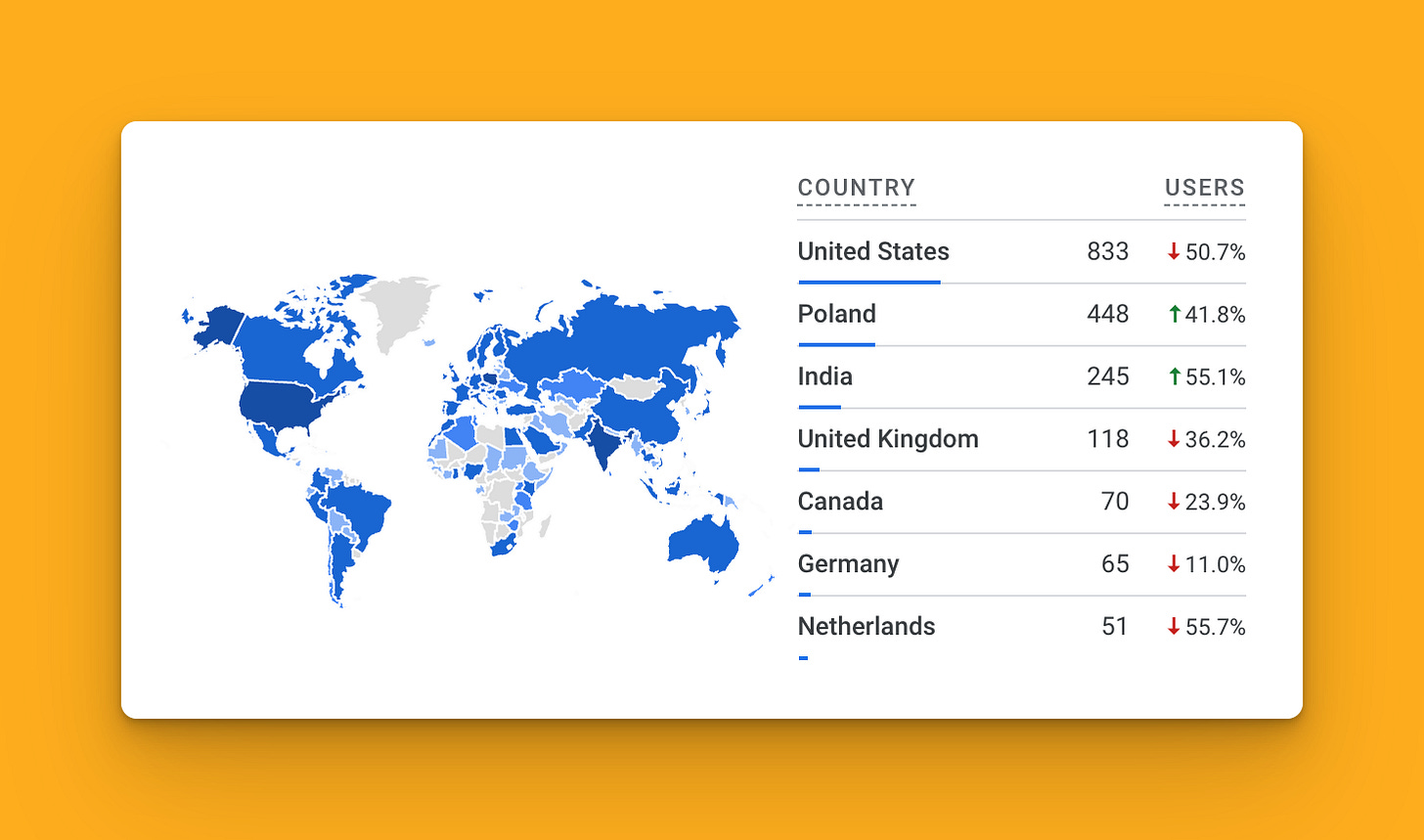
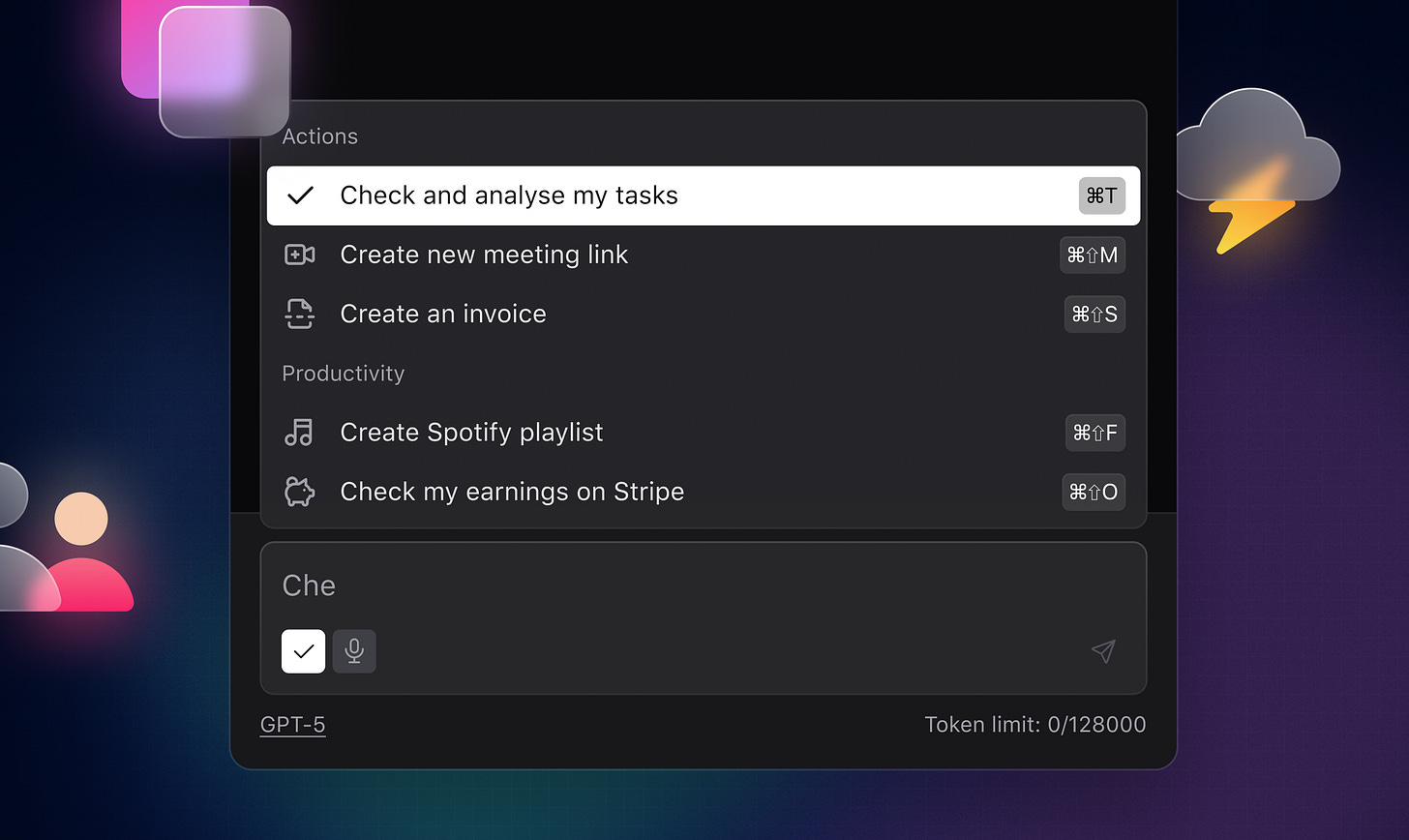
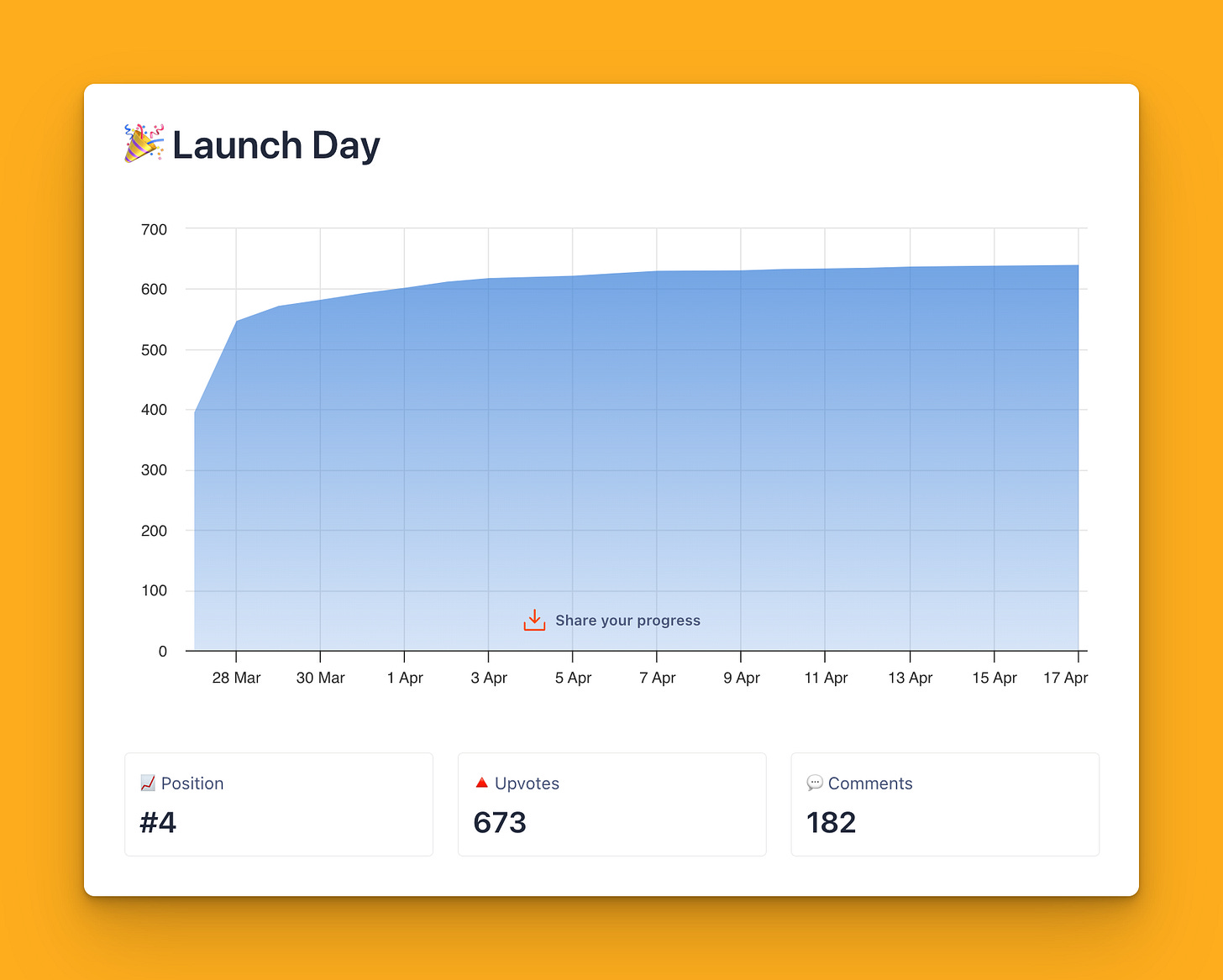
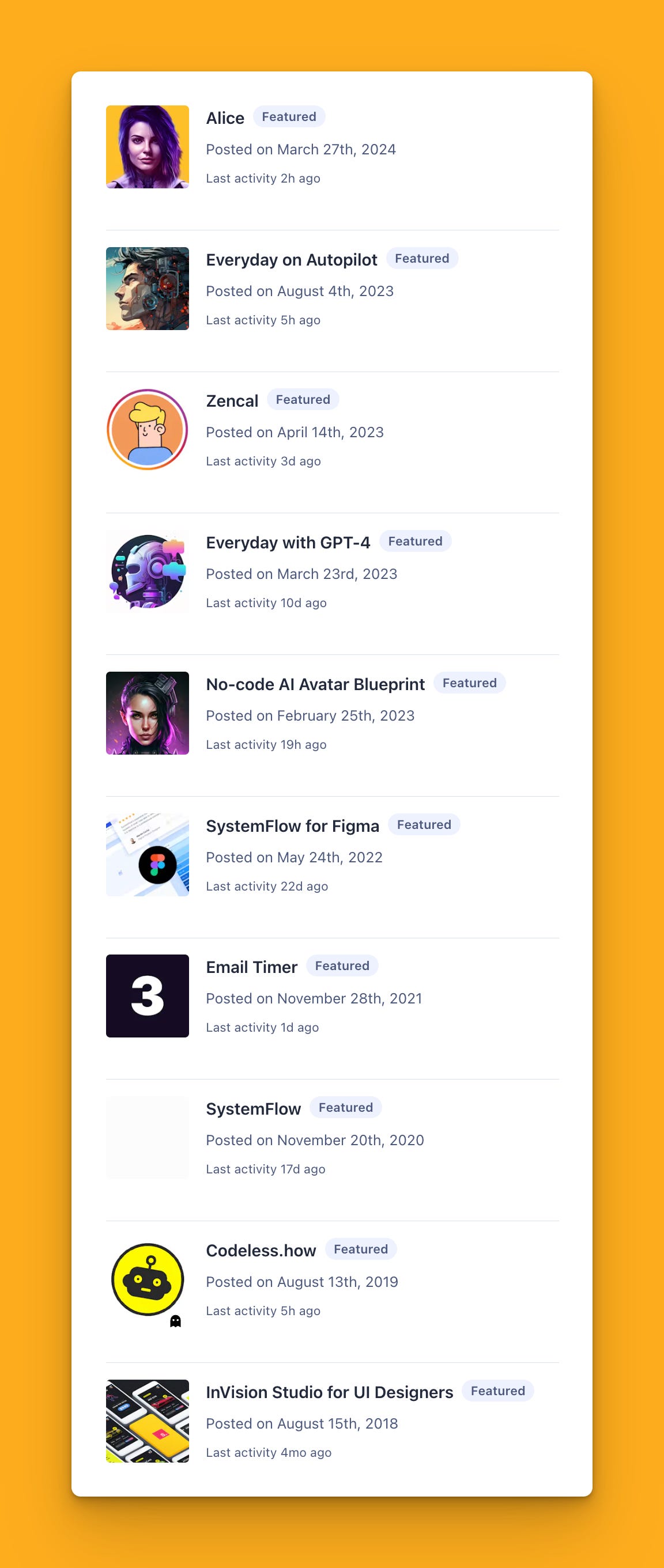
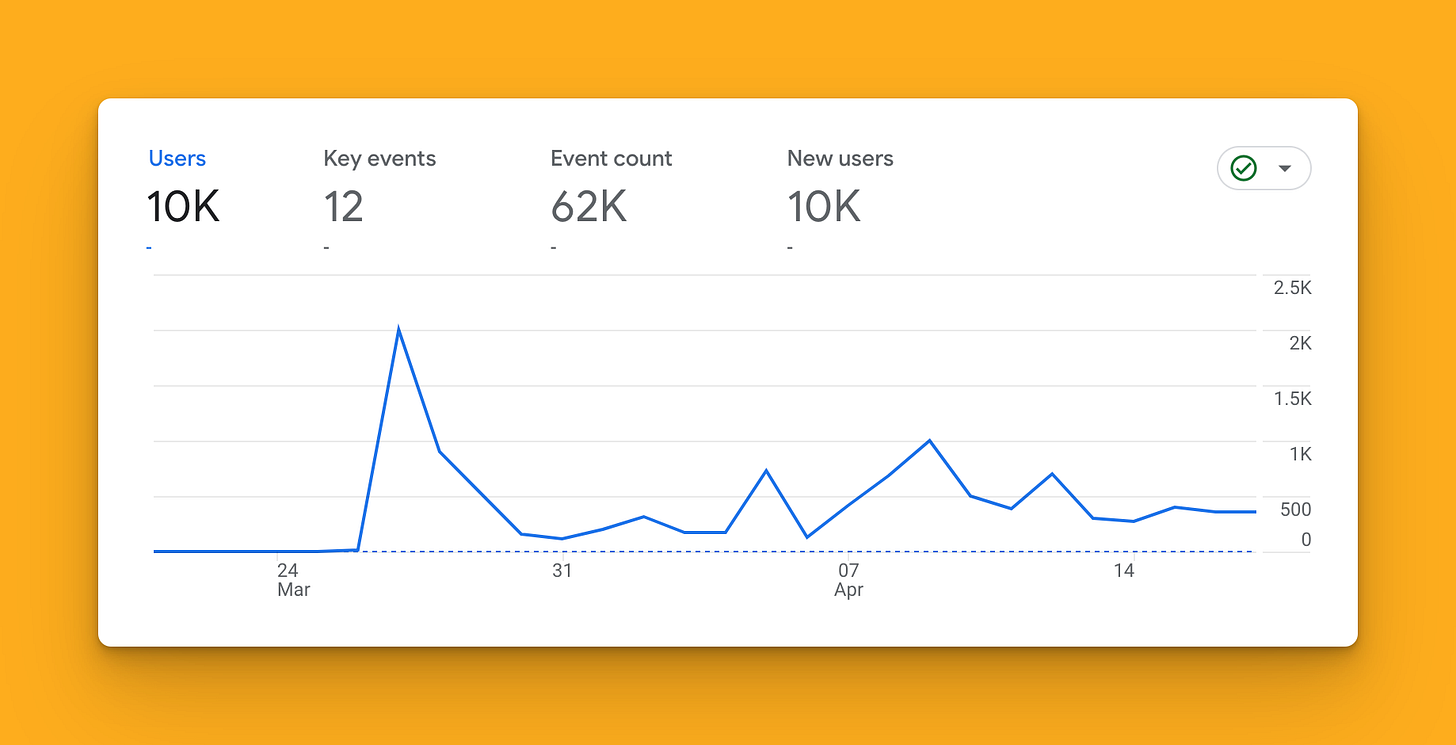
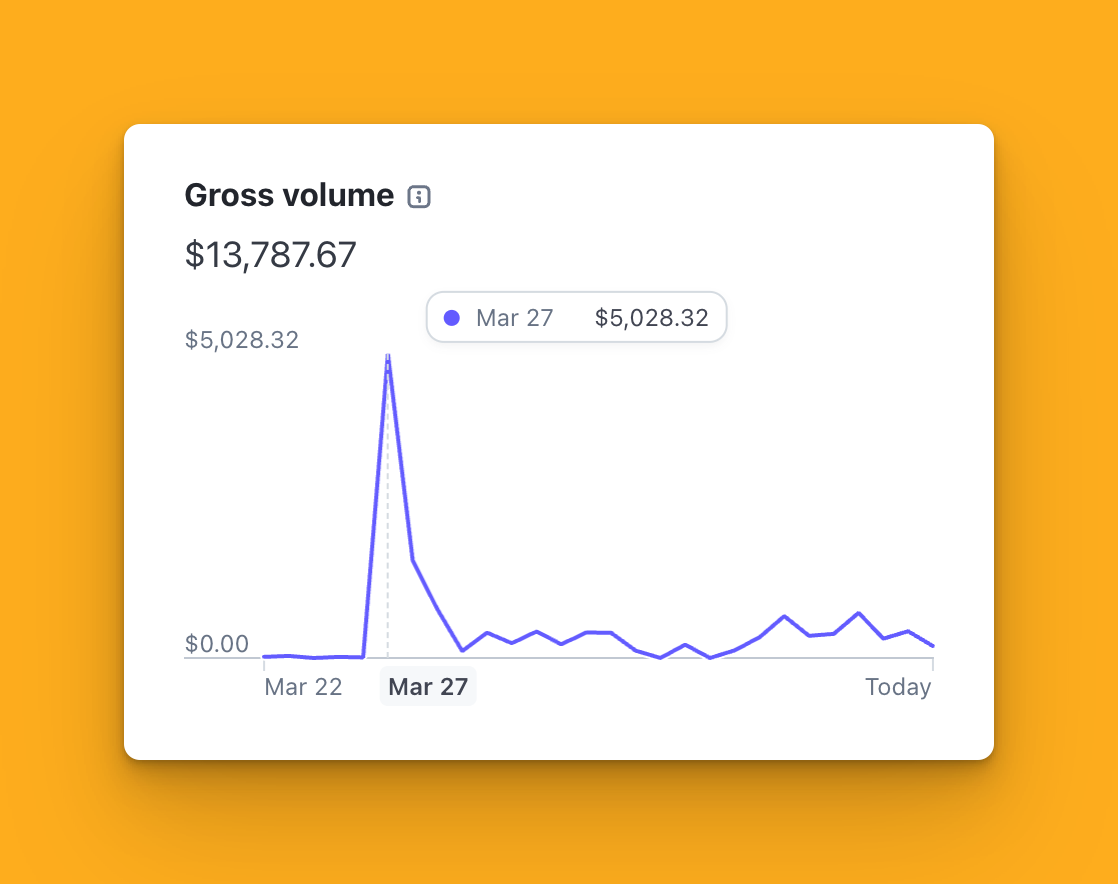
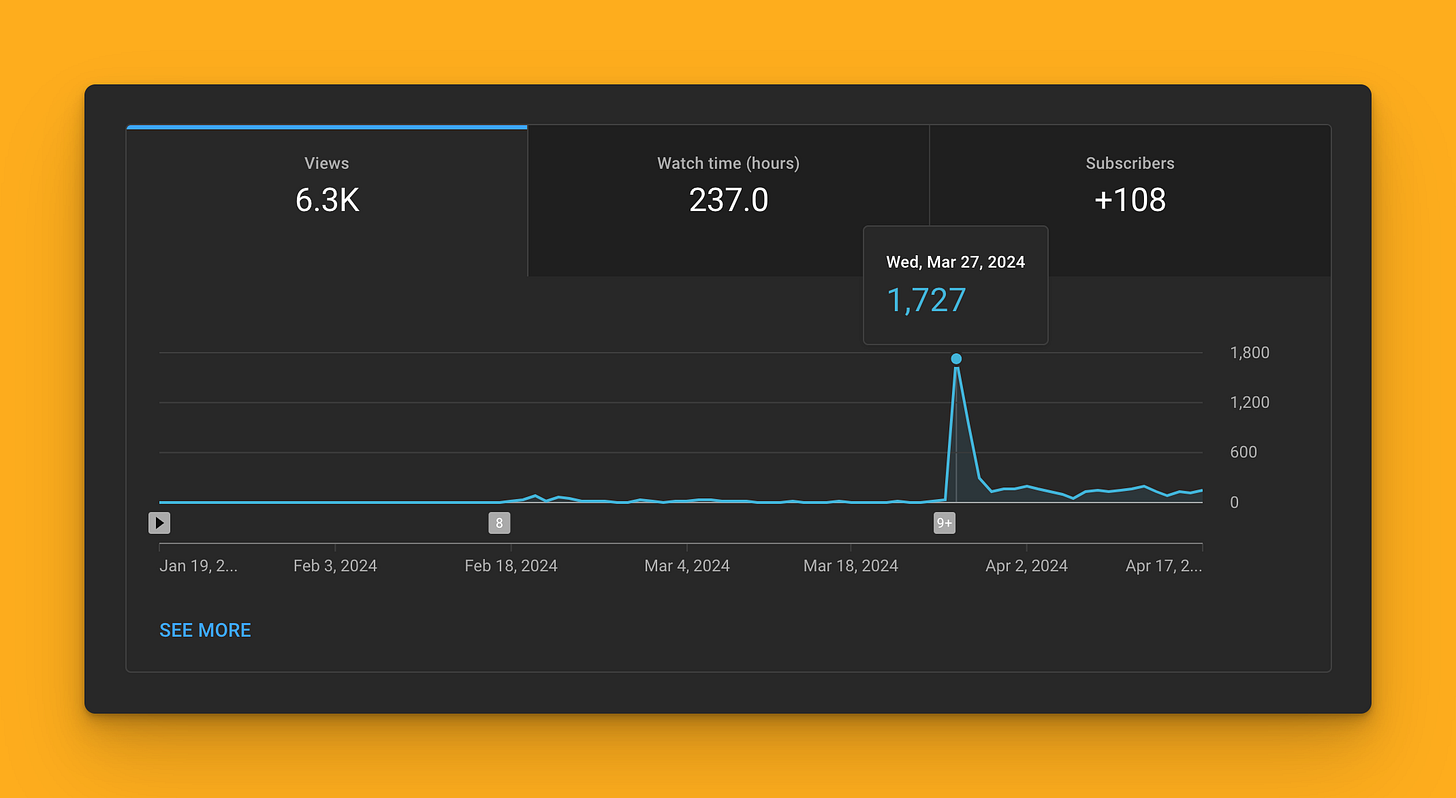
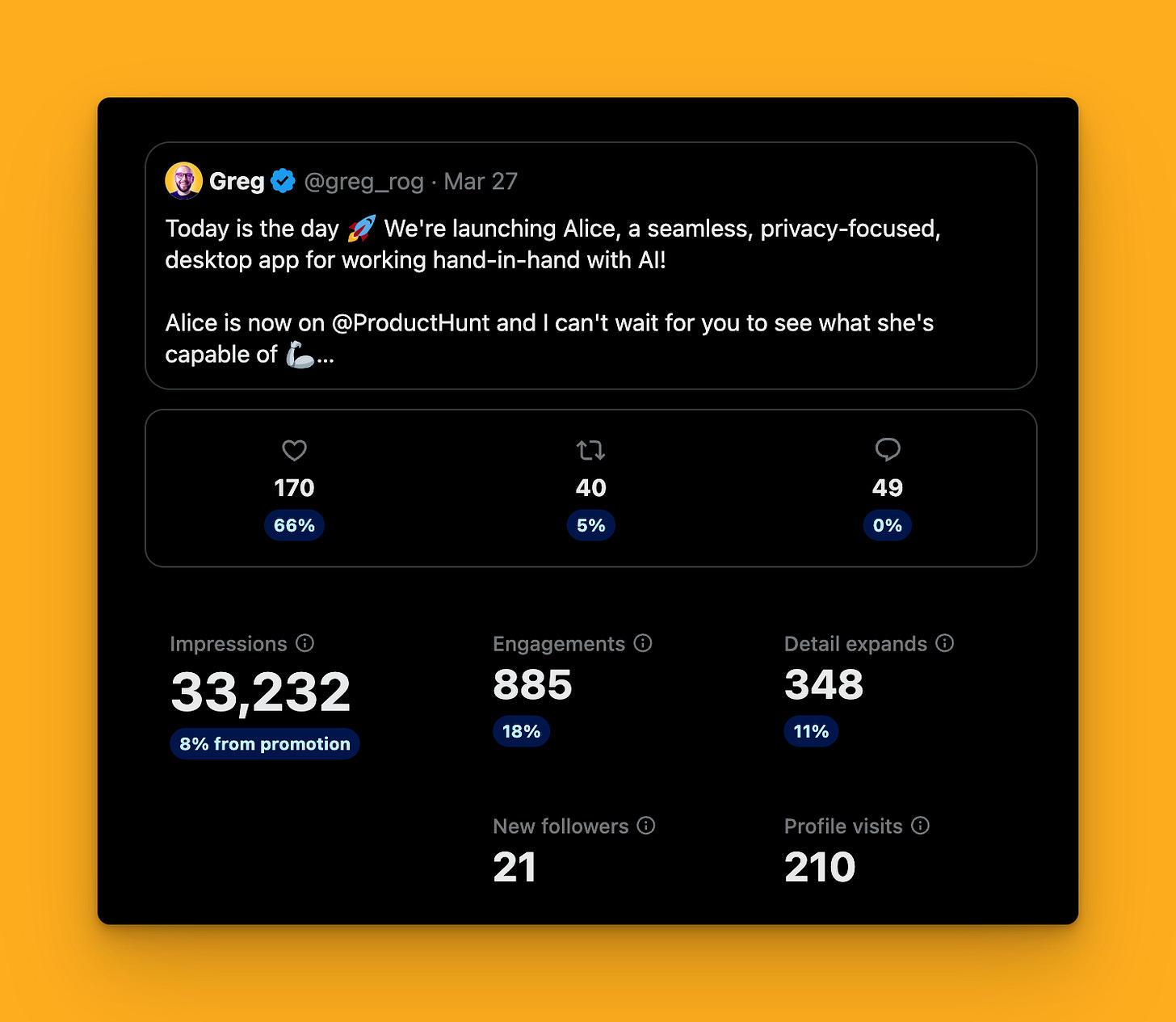
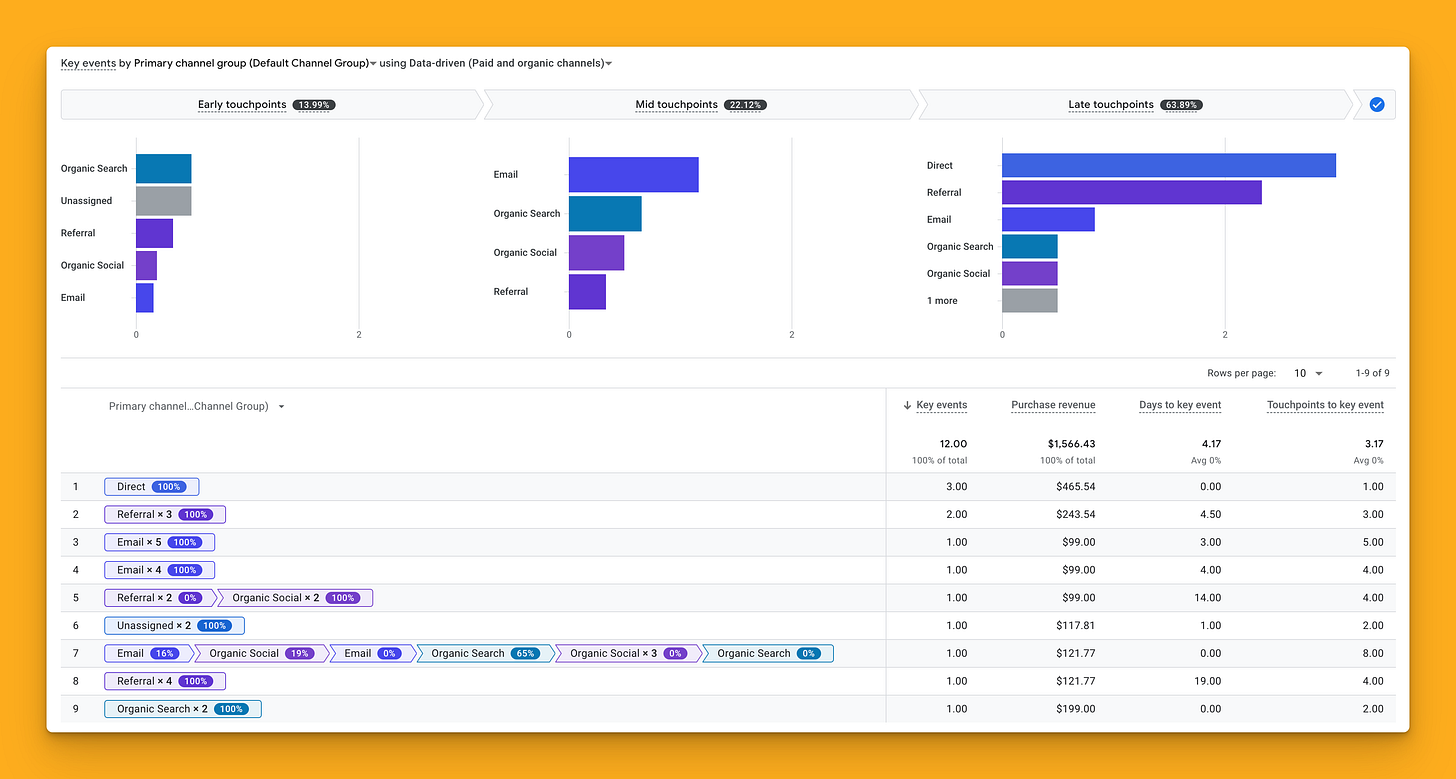
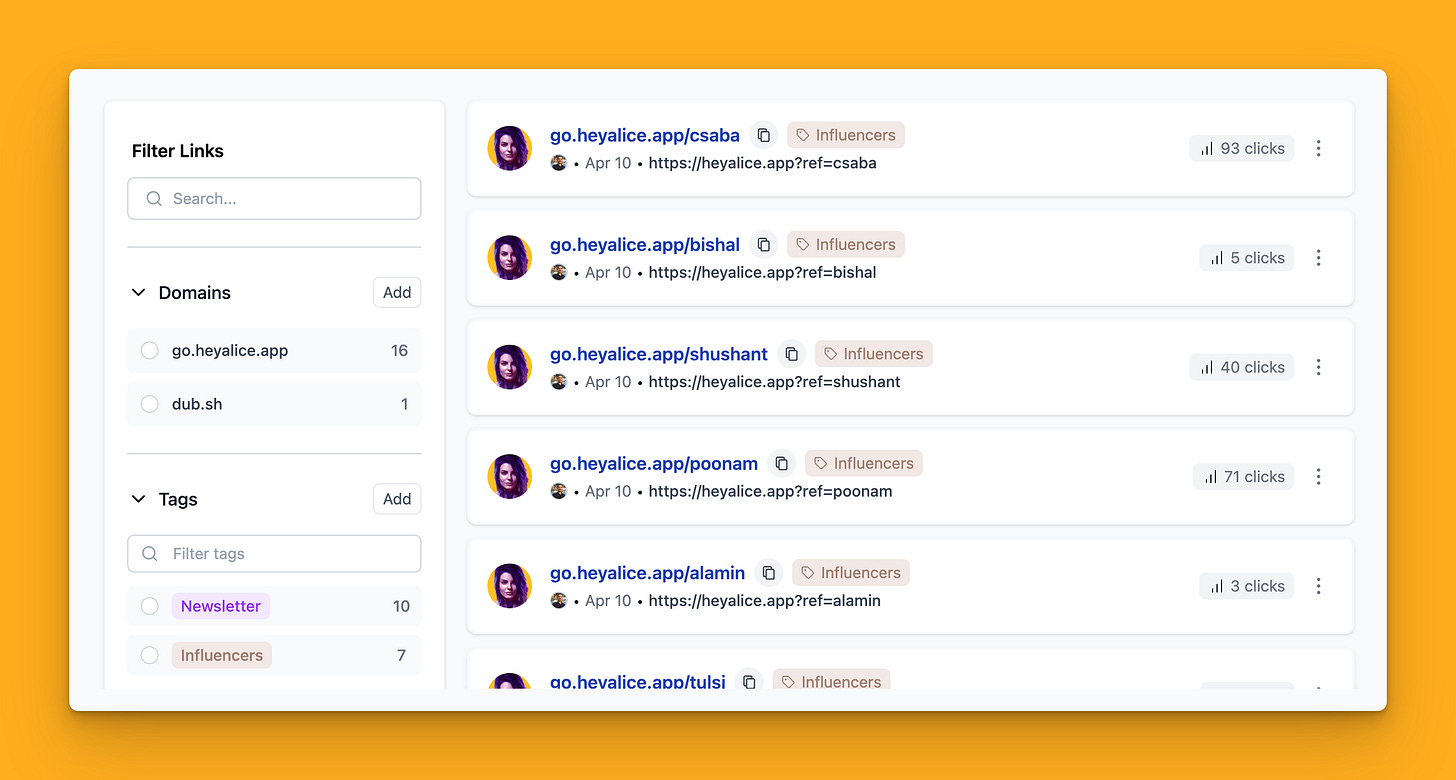
Comments are open! Please, don’t be a stranger 🫶
Thank you for putting all your lessons learned into written form, enriched with your observations, Greg.
Good luck with further growth!